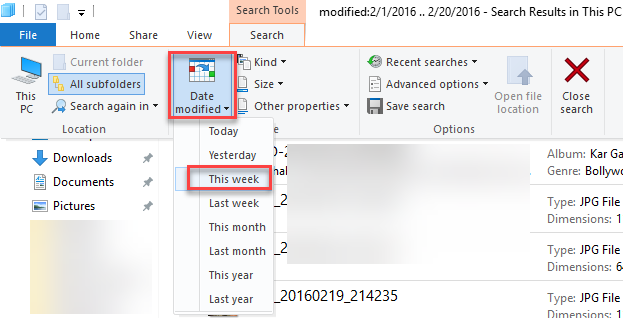

(For consistency, all screen captures here come from Windows 11, but their Windows 10 counterparts are nearly identical, saving rounded corners on display windows.) The bad news is that Windows 10 offers more snapshot coverage than Windows 11, as I’ll explain at the end of this piece. The good news here is that File History looks and behaves mostly the same across both versions. To conclude, I’ll also explain differences in coverage and capability between Windows 10 and Windows 11 versions of File History.
#HOW TO FIND FILES BY DATE WINDOWS 10 HOW TO#
Such coverage comes from whole-system backup and restore tools see “ How to make a Windows 10 or 11 image backup” for details. Nor can File History restore an entire Windows installation. It cannot, for example, back up entire drives.

But it’s important to understand that File History backs up only certain files. To some extent, this description is justified. You’ll see some references refer to File History as a backup and restore tool. Also included are offline files associated with the user’s OneDrive account.

Formerly known as Libraries, these folders include Documents, Music, Pictures, Videos, and Desktop. Simply put, File History is a snapshot mechanism for all files that users store in the primary folders or directories associated with their user accounts. Still available in both Windows 10 and 11, it can help you make sure you never lose an important file. When Windows 8 made its public debut in October 2012, one of the new features it introduced to users was called File History.


 0 kommentar(er)
0 kommentar(er)
